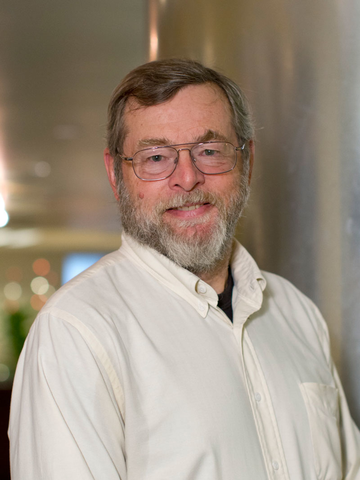Wrestling with the ethical implications of unleashing powerful new technologies

Ever-expanding and increasingly capable technology is shaping modern life. And those rapid advances bring both opportunities and challenges to our society.
Arizona State University professor Brad Allenby and fellow authors delve into many of the big questions on the subject in his recent book, “The Applied Ethics of Emerging Military and Security Technologies.”
Allenby (left) is a President’s Professor of civil, environmental and sustainable engineering in ASU’s Ira A. Fulton Schools of Engineering, and Lincoln Professor of Engineering and Ethics in ASU’s Lincoln Center for Applied Ethics at ASU.
He is also the founding director of the Center for Earth Systems Engineering and Management, and the founding chair of the Consortium for Emerging Technologies, Military Operations and National Security.
He has drawn on his expertise in each of those roles in producing the book.
Question: How do you approach exploring this topic in the book?
Answer: The book is a series of essays, some written by me and others authored by a number of colleagues whose work deals with issues involving the societal impacts of technological advances and the related ethical considerations. We provide various and sometimes conflicting perspectives on the implications of developing and employing such emerging technologies.
Q: Why focus specifically on military defense and security technologies?
A: In general, all kinds of new technologies give rise to some level of concern about how they might be used, and if their impact might be negative in some way. Such concerns are intensified in the case of modern military and security technologies because of the power they allow their users to wield. Complex social, ethical, legal and political questions emerge in the wake of rapid advances in these particular technologies.
Q: What specific types of technologies raise these issues?
A: Examples of challenging and complex technologies include autonomous robotic systems, unmanned aerial vehicles, biotechnologies in military and security applications, and cyber weapons.
More broadly, it’s everything from nanotech and biotech to robotics, cognitive science and information technologies. They are rapidly changing the world as we know it, and a lot of advances in these areas arise directly from our efforts to enhance our military and security capabilities.
Q: How does this relate to your work as an engineering professor?
A: You really can’t understand today’s high-technology world, or the directions of technological evolution, without knowledge of these kinds of systems. And such a world requires that engineers and technologists take an active, ethical and informed role in helping to manage it. That’s part of what I teach in courses such as earth systems engineering and management, and sustainable engineering.
Q: You write that these technologies have implications beyond the scope of geopolitical relationships between nations and governments. How so?
A: Almost inevitably the technologies that are initially developed for national military purposes and national security needs will spread into use throughout civil society and into our own local civic environments. When that happens it brings with it ethical considerations involving such fundamental values as personal freedom and privacy, and concerns about protection from criminal behavior and the use of police power.
We also see expanded roles of private firms, non-governmental organizations, and social movements in regional and global geopolitics, so we need to think about how they may use or abuse such technologies as well.
Q: What is the main intent in writing the book?
A: Public debate on how we should use powerful new technologies is too often superficial and ill-informed. As citizens and as professionals in a high-tech world with growing military and security challenges, we need to do better. I hope the book will in some way help to elevate the debate.
Top photo by Don McCullough from Santa Rosa, CA, USA (Drone and Moon) [CC BY 2.0 (http://creativecommons.org/licenses/by/2.0)], via Wikimedia Commons
More Science and technology

AI and robotics researchers at ASU work to keep people safe, healthy
As Arizona State Unviversity continues to shine in U.S. patent rankings, robotics and artificial intelligence garner a growing percentage of such technologies. Two faculty members among the…

A new chapter in national security research at ASU
In 1957, the Soviet Union launched Sputnik, the world’s first artificial satellite, into a low orbit around the Earth. Only the size of a beach ball, the satellite sent shock waves through the United…

One ASU researcher’s fix for freight’s costliest miles
America’s freight system is a miracle of modern logistics — until it isn’t. One snowstorm, one labor shortage, one delayed truck outside a major hub, and the whole process starts to wobble.…
